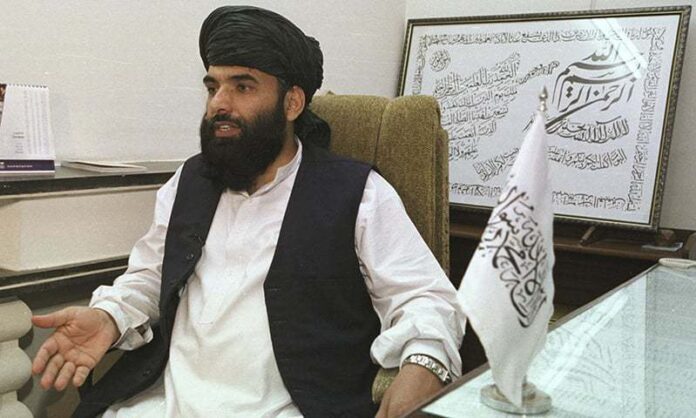Pakistan has made efforts to smooth over the growing rifts between Pakistan and Afghanistan and even with a seemingly pro-Islamabad regime in Kabul led by the Afghan Taliban, the underlying issues between the two countries remain difficult to resolve. Under such circumstances, Ali Khan from Matrix Media recently interviewed Suhail Shaheen, Head of the Taliban’s Political Office, Doha who spoke about the recent clashes between the security forces, which remains a key driver of tensions, undermining trust and provoking enmity between the two countries. Moreover, he talked about the numerous governance challenges Afghan rulers are dealing with in terms of international recognition, humanitarian aid, basic healthcare, women’s education, and infrastructure development, as well as countering the terrorism threat.
1) It has been more than a year since the government of the Islamic Emirate of Afghanistan (IEA) assumed control of the country, but, unfortunately, not a single country has recognized it. What plans does the government have in this regard?
Answer: If the invading countries do not recognize us, it is understandable, as they have fought us for 20 years. They have their own goals, purposes, and reasons, but we want to know why are the Islamic countries doing this. Yes, we have some minor differences among the Islamic countries, but this should and cannot prevent recognition. So, why (they do not recognize us)?
2) The IEA rulers said at the beginning of their government that the present-day IEA would not be like the Taliban of 20 years ago but in harmony with the modern era, but still, we see that girls’ education has been banned. This decision has been condemned all over the world. Don’t you think that such decisions prevent approximately all countries from accepting IEA?
Answer: We said then and still say that we accept everything that Islamic principles allow, including education. We have never said that we are against girls’ education, but we want to provide an Islamic environment for girls’ education. Now, work is in progress to create such an environment.
3) The Pakistani and Emirati forces fought each other on the Chaman border. I am not talking about whose fault it was, but innocent people on both sides were killed and injured. Did the Islamic Emirate talk to their Pakistani counterparts in this regard? Also give your opinion about the Torkham border, what is the extent of difficulty vis-à-vis people’s movement?
Answer: First, these clashes do not indicate a big war between the two countries, but sometimes local clashes have occurred. Civilians were killed on both sides, it should not be repeated, and every death should be prevented. Afghans are being harassed on the Torkham border; this is not done by us but by Pakistani officials. We have repeatedly requested to end this harassment and bitter interactions because it harms bilateral relations and has no justification.
4)Terrorism has resurfaced in Pakistan; the Pakistani government says that most of the TTP commanders are in Afghanistan. What is the stance of the Emirate government on the TTP’s extremist activities in Pakistan? Do you condemn them?
Answer: According to the Doha agreement, we do not allow anyone to use the territory of Afghanistan against anyone. These people live in tribal areas which are not in our control. Of course, we want trade and good relations with our neighbors in this entire region, and it is possible only in peace.
5) Afghanistan has borders with Pakistan, Tajikistan, Turkmenistan, and Iran, even these neighbors did not accept the legitimacy of the Emirati government. What are your government’s plans to convince them? Secondly, what steps is the Emirati government taking to bring back Afghans from across the world and guarantee them peace and stability?
Answer: Now our country is independent, there is enough space for investment. We want all Afghans to return to the country and invest here. Now, there is peace in the country. We also want the neighbors to help each other and continue to create a peaceful, economic, and urbanized region.
It is crucial for Pakistan and Afghanistan being Muslim neighboring countries to bring amity and stability by facilitating the peace process. The important stakeholders from both countries should come together and negotiate for the greater




